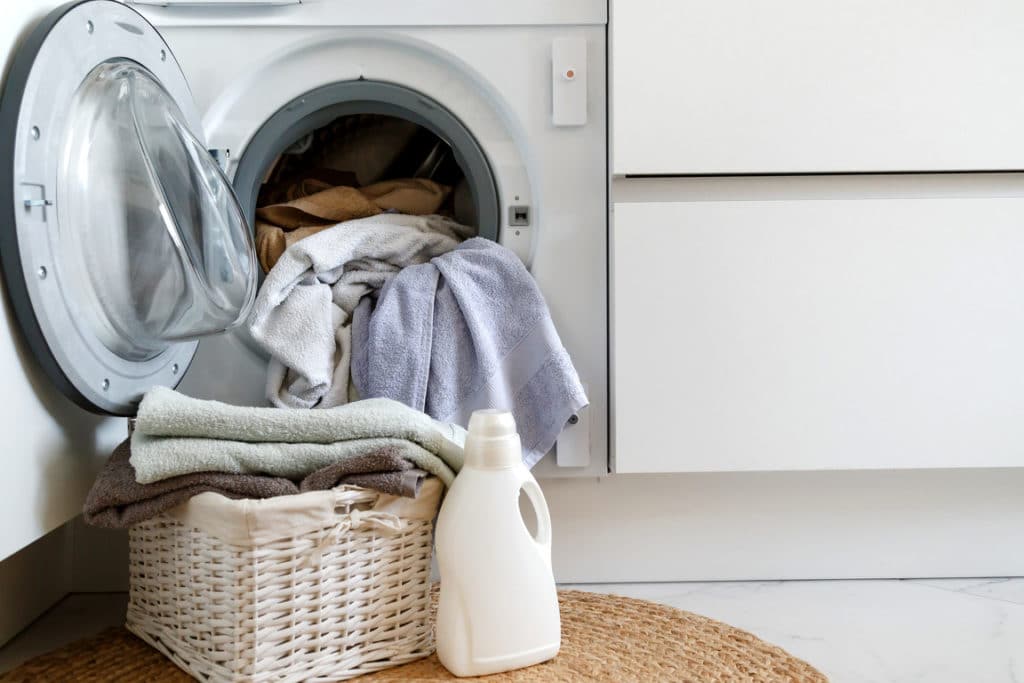Neat tricks to save money on power

Are you struggling with ever-increasing power bills? Are late payments impacting your credit rating? There are many ways to reduce your power bills, simple everyday actions that can cumulatively save you hundreds if not thousands of dollars a year. We already know many of the power saving tips, which prompts the question, why aren’t we using them?
Inflation in New Zealand currently stands at 1.5%, which means that living costs are rising each year. Unfortunately, amid the COVID pandemic, wages are not necessarily keeping pace with inflation which means your income is being stretched further and further. However, there are numerous ways in which you can save money. In this article, we will cover several neat tricks to save money on power – maybe even enough to fund a short break/vacation.
Warmer Kiwi Homes grant
Before we take a look at some of the simple tricks to save money on your power, it may well be worth looking at the Warmer Kiwi Homes grant scheme to see if you are eligible. This scheme provides grants to cover 80% of the cost of:-
• Ceiling insulation
• Underfloor insulation
• Alternative heating options
The scheme is open to individuals:-
• Who own and live in a home built before 2008
• Have a Community Service Card/SuperGold combo card OR
• Own and live in a home in an area classified as “lower-income”
To check your eligibility, click on the website link below:-
https://tools.eeca.govt.nz/warmer-kiwi-homes-tool/
Even if you are not eligible for a Warmer Kiwi Homes grant, there are other options that the government will be able to recommend. If you don’t ask, you will never get it!

Reduce moisture in the air
While it makes perfect sense, many people don’t realise, but the more moisture in the air in your home, the more expensive it is to heat. Many simple tricks will reduce the moisture in your air and cut your heating bills:-
• Open the curtains in the daylight to let in warmth
• Open doors and windows to air your home
• Wipe away any condensation from your windows/walls
• Try not to dry clothing indoors (this releases moisture into the atmosphere)
To put this into perspective, imagine you are standing outside on a hot sunny day. Very quickly, you will feel the heat on your skin, and you will begin to burn. Compare this with the transfer of heat if you are underwater in a swimming pool. Eventually, the water will heat up because of the heat from the sun, but it would take a long time, and the water will never reach the temperatures experienced by standing outside in the open air.

Turn off your appliances when not in use
It is estimated that New Zealand consumers waste around $100 million a year by leaving various products on standby power. If we are honest, many of us already realise that having a television or any other product on standby means that energy is still being used. If these products are on standby overnight, every night, this is simply wasting money. It will also need to be replaced much more frequently than one switched off when not in use.
Some of the more common devices which many of us leave on standby include:-
• TV
• Printer
• Games consoles
• Mobile phone chargers
As we have mentioned on numerous occasions, the individual savings associated with each device may be minimal. However, the combined impact could lead to tens if not hundreds of dollars in savings per year. So start small and work your way up to potentially significant savings!

Consider washing your clothes in cold water
This idea may be alien to many people, and on paper, it does look somewhat “out there”. However, next time you buy some washing-up detergent, check the instructions. You will see that the vast majority of washing-up detergents now work just as well with cold water as they do with warm water. Consequently, a mixture of highly efficient washing machines and advances in washing-up detergent technology can lead to significant long-term savings.
On average, a warm water cycle will use up to 10 times more energy than a cold water cycle. This may only save you a dollar or two a day, but over the week, month and year, it can make a difference. Think about it, the energy used to heat the water is no longer needed hence the power-saving and cost-saving. So if you don’t believe us, give it a try the next time you have a full basket of laundry.
Many people use hire purchase loans to acquire equipment such as washing machines. This can be an expensive form of finance. You may benefit from a debt consolidation loan bringing all of your loans under one arrangement and just one monthly repayment.

Use your dryer sparingly
Drifting seamlessly from washing machines to dryers, there are several ways in which you can reduce the cost of running these energy-hungry appliances. On average, a dryer will use around $1 of electricity per load. This may not seem a lot, but you will likely have a significant amount of clothing to dry if you have a large family. In a perfect world, the sun would be beating down, and your clothing would be dried naturally. Unfortunately, this is not always possible!
There are several ways you can reduce the cost of using your dryer:-
• If you need to use the dryer, squeeze as much moisture as possible out of your clothing
• Use the spin cycle on your washing machine to remove excess moisture
• Clean the filter regularly to maintain efficiency
• Only use when you have to – natural heat is better for your clothing and cheaper
The chances are you will be reading this list and saying to yourself, “that is straightforward; everybody knows this”. But, as we touched on above, if we all used the power-saving tricks that we “know”, we would all have lower bills, and there would be less impact on the environment.

Consider running some appliances at night
As peak electricity use occurs during the day, you tend to find that the cost of electricity can be significantly less through the night. However, it may seem a little strange to suggest that you should consider running some appliances at night. But think about it.
There is nothing to stop you using an array of products at night time such as:-
• Phone chargers
• Washing machines
• Dryers
• Dishwashers
Many websites will demonstrate the potential savings between the cost of electricity through the day and electricity during the night (on-peak/off-peak). It is interesting to learn which times of the day are considered off-peak, partial-peak and peak. While we appreciate you will not be able to arrange the use of all-electric products during off-peak times, there are certainly some options as we have mentioned above.

Heat pumps are efficient, but you can still make savings
Compared to many other types of heating, heat pumps are highly efficient and are now installed in around 25% of New Zealand homes. It is essential to shop around to find the most efficient heat pumps as some can be relatively energy-intensive. There are also some straightforward actions you can take to trim your power bills even further:-
• Never leave a heat pump running while you are not in the house
• Only use a heat pump when you need it
• Avoid “auto mode” where possible as this uses more energy, constantly resetting the heat pump as the temperature fluctuates
• Clean the filters regularly to maintain maximum efficiency
We know that heat pumps are highly efficient. However, many people were probably unaware of the additional actions you can take to reduce your power bills even further.
Only run products at full capacity
It goes without saying that washing machines and dishwashers should only be used when they are full. However, let’s be honest, how many of us switch on the washing machine for just a few clothes? How many of us will use a partially full dishwasher to get those dishes done and out of the way?
While nobody is perfect, we all know that running appliances such as washing machines and dishwashers can be highly inefficient when they are not full. If you do need to use these appliances, at a fraction of their maximum capacity, is there an energy-efficient cycle you can use? Is there a program that will shorten the process to reflect the reduced capacity?
In a perfect world, we would only use washing machines and dishwashers when they are full. However, even though this is not always possible many electrical appliances will have an energy-efficient shortened cycle. Check it out; it could save you a significant amount of money in the long term.

Boiling too much water (yes, that’s not a typo)
Whether looking at a kettle, or a pan for heating water, only boil as much water as you need. Unfortunately, these two processes are highly inefficient, the transfer of heat from one surface to another and the use of an electric element to heat water. Consequently, if you can reduce the amount of power used, there are potentially significant short, medium, and long-term cost savings.
As it takes much longer to heat more significant volumes of water, you will also notice that you lose more water through steam. Each molecule of steam escaping the kettle or the pan is money leaving your pocket. Stop it!

Use these neat tricks to save money
Whether you are looking to maintain your credit rating or balance expenses in other areas of your life, there are numerous ways and means of reducing your power bills. You will have come across the vast majority of the above suggestions, although some may be a surprise. Again, and we mention this every time, if we all know these neat tricks, why aren’t we doing them?
One thing is guaranteed. Once you start reducing your power bills, this can quickly become addictive, and you might look for other areas in which you can make savings. Remember, this is all money in your pocket. Make sure you keep an eye out for more money-saving tips from Alternate Finance very soon.



